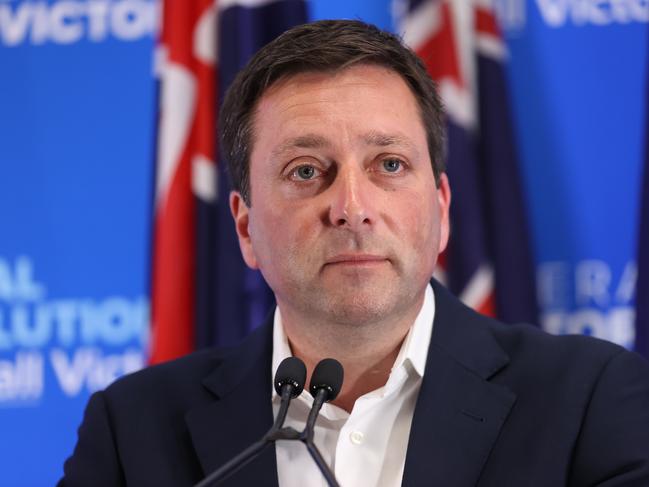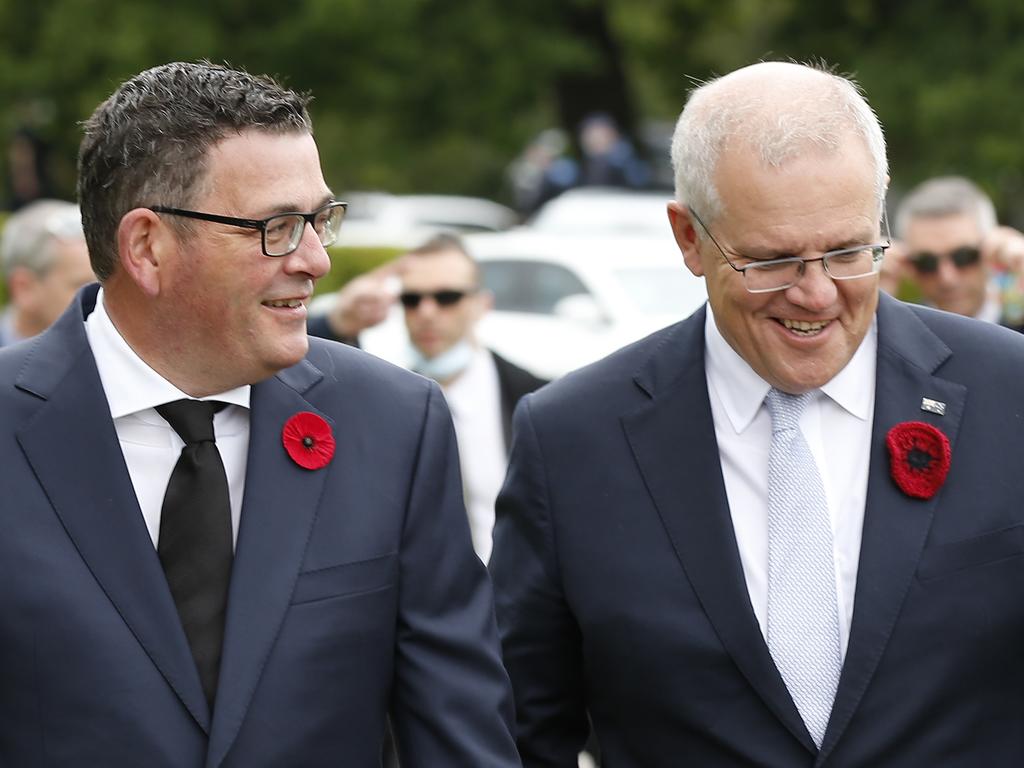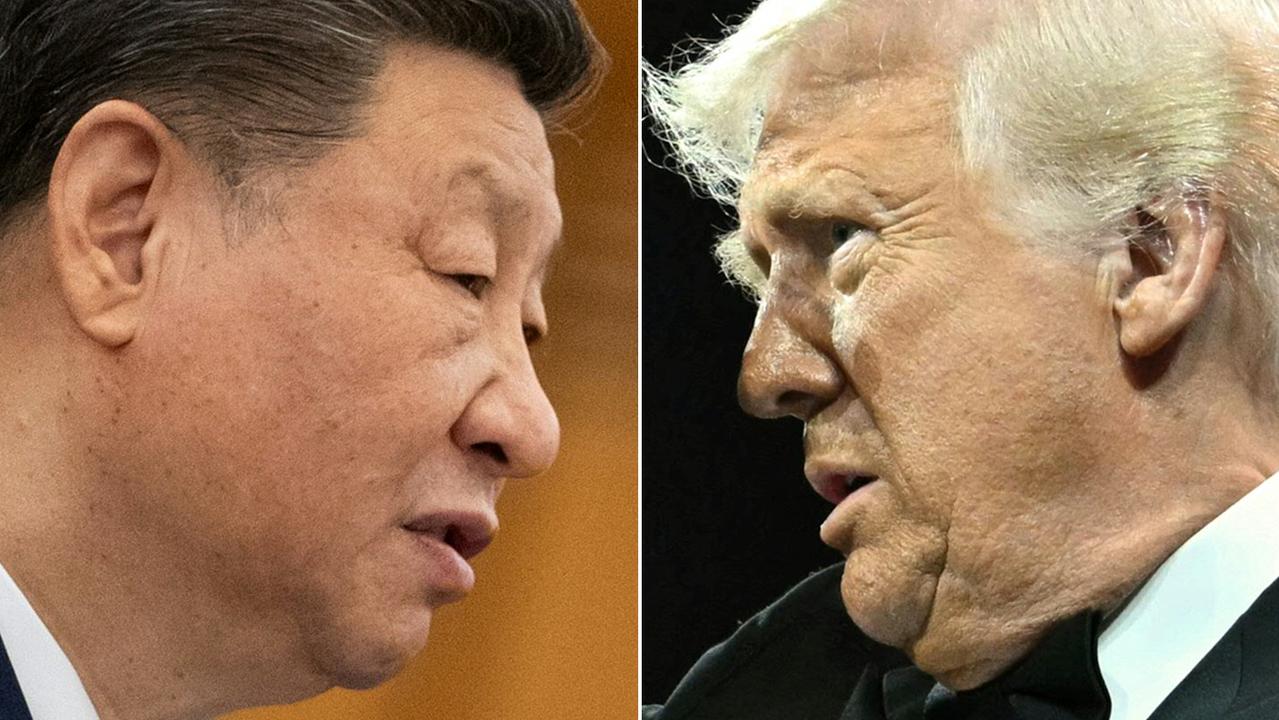In test of leadership, Victorian voters stuck with the devil they know

The Liberal campaign was right, I think, to lead with the slogan: “Don’t let him get away with it.” Daniel Andrews will be known forever as the lockdown premier. Here was his achilles heel.
The Liberal problem was that its own leader, Matthew Guy, turned out to lack the stature to replace the Premier. And, to narrow the campaign focus to just one subject – Andrews – required the alternative to loom large and plausible in the public mind.
This meant that where resentment remained strong, in the less well-off western suburbs of Melbourne, the public needed less convincing, and swung significantly to the Liberals. There, lockdown had been, in general, more punitive, due to such factors of high casual employment, less facility with home-schooling, and higher Covid death rates.
In the more prosperous eastern suburbs, a more benign lockdown, due partly to working from home, larger houses and better capacity for home-schooling, meant there had been less pain.
Consequently, this Liberal campaign needed strong, incisive leadership to reawaken bad memories and resentments from two years ago. That leadership failed. The electorate once it looked up from its everyday life and its myriad challenges, often begrudgingly, to glance at the choice offered, decided it was underwhelmed by the alternative. It would stick with what it knew.
And further, across the upper middle class, the Liberal image remains tarnished by the hangover from federal politics of disrespect for women, insensitivity on progressive social issues and distrust among some ethnic groups.
There is another factor. Leo Tolstoy, in War and Peace, came to the surprising conclusion about war and battles: “Success never did and never will depend on position, or on ammunition, or even on numbers … A battle is won by him who is firmly resolved to win it.” The same applies in politics. On election night, the demeanour of the opposing leaders gave the strong impression that it was Andrews who had the driving passion to win.
During the campaign, Guy sometimes aroused the suspicion he didn’t really believe in himself, or in the legitimacy of what he was doing. There was an authenticity problem.
The political equivalent of Tolstoy’s battle list of position, ammunition and numbers is the past record in office and the actual election campaign. It is worth dwelling on the record to underline Tolstoy’s point.

The Andrews record is mixed. On the positive side, the state needed a strong, decisive leader in the first pandemic year to steady high levels of anxiety triggered by the uncertainties of where and how the rampaging plague would strike. The Premier provided that in calm, clear daily briefings. Also, there had been substance to his earlier image as a can-do leader, unlike the dithering Liberals, removing train level crossings and building major new infrastructure. There was a touch of Jeff Kennett to him in those days.
But the negative side of the ledger grew remorselessly. Andrews’ big projects hit troubles, slowed down, stopped, their costs rising astronomically, swelling the dangerous size of state debt.
Further, the after-effects of Melbourne’s Covid lockdowns endured in teenage depression, school student disengagement, family violence, a teetering health system, unrepaired roads, and a still faltering CBD.
The NSW approach to the virus had been much more successful, and across the board, including a significantly lower per capita Covid death rate than in Victoria.
The symbols of draconian lockdown were stark – the ring of steel around Melbourne, children’s playgrounds roped off, schools unnecessarily shut for most of a year, suburban shopping strips bleakly fronted with For Lease signs, and small business ravaged.
All of this and more should have been a gift for Guy. Andrews’ image could have tipped either way in recent weeks. There were times, in the past two years, when he looked bleak, his face harrowed and grim, as he seemed to retreat into stubborn, unyielding defensiveness. More and more, he loomed as a solitary figure on a spotlit stage, surrounded in the shadows by ministerial and bureaucratic subservience – a dozen of his ministers have now left.
But all of this needed an opposition leader to exploit, seize hold of, and drive relentlessly, and with utter conviction, through to the election. Andrews, when he first won office, had campaigned with a thrusting bullish confidence that left the then premier, Denis Napthine, reeling back, stuttering in confusion.
Political leadership can be harrowing and unforgiving. It is a long time since a major Australian leader has left office with reputation intact. One thinks of Tony Abbott, Malcolm Turnbull and Scott Morrison, not to mention Labor leaders. Morrison’s defeat brought to light a high degree of dislike of him personally in the electorate, and now he sits, a lonely figure of untouchable embarrassment, on the backbench. Even Gladys Berejiklian, who should be celebrated in glory for her canny handling of the pandemic, left office in a cloud of controversy.
Reputation is big stuff. Shakespeare put it: “He that filches from me my good name makes me poor indeed.” The individual is demeaned, but, when it is the leader, so is the society. Another of Shakespeare’s political plays, Julius Caesar, hinges on whether Brutus is the noblest Roman of them all. That he is not leaves a sour aftertaste. The dignity of the whole has been lowered.
Successful government does not depend on a leader being liked, but they do need to be respected. Andrews’ victory has tipped the reputation scales, for the moment, back in his favour. Those scales were precariously balanced a month ago. He got lucky with Guy, but he can’t count on that again.
He may be tempted to retire during the current term of office, while his stocks are high. On the other hand, leaders with as much relish for unquestioned power, and ruthlessness to dominate as he exhibits, tend to have dangerously hubristic levels of self-belief. They harbour the illusion they can rule forever.
John Carroll is professor emeritus of sociology at La Trobe University.







The Victorian election highlighted once again the critical issue in politics of leadership.